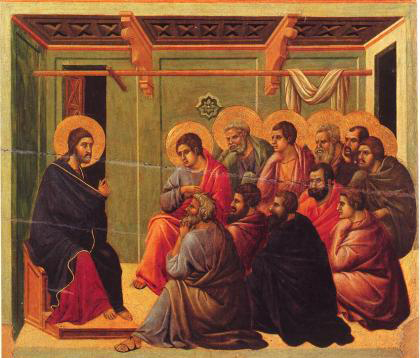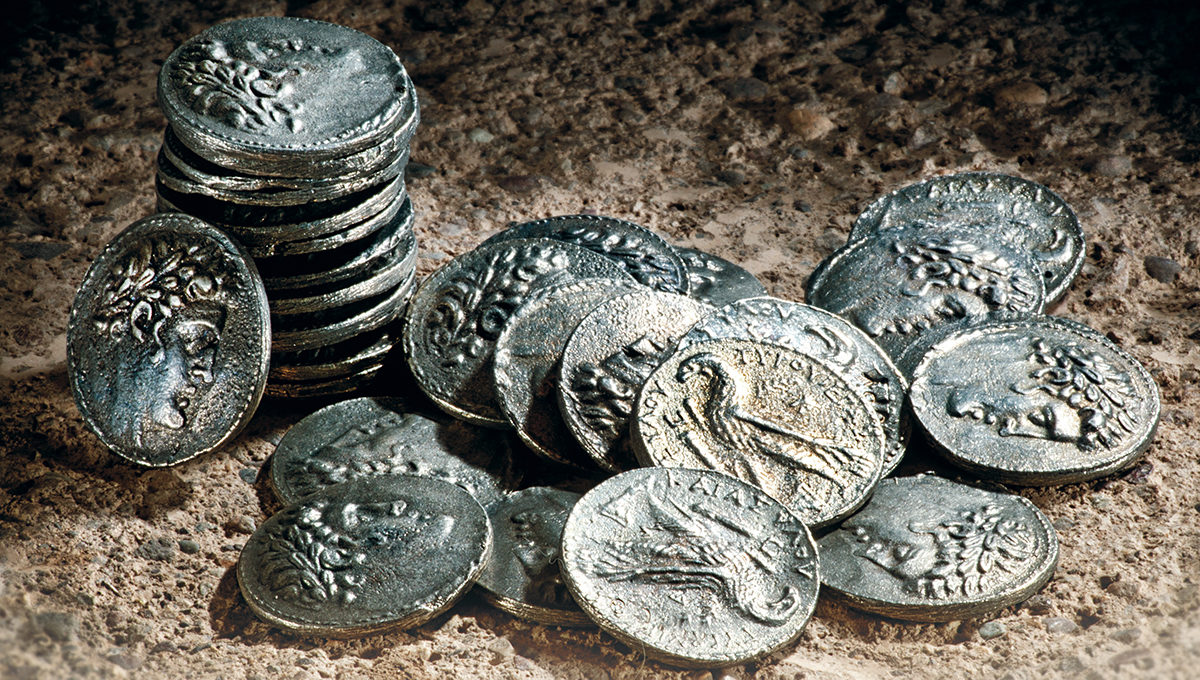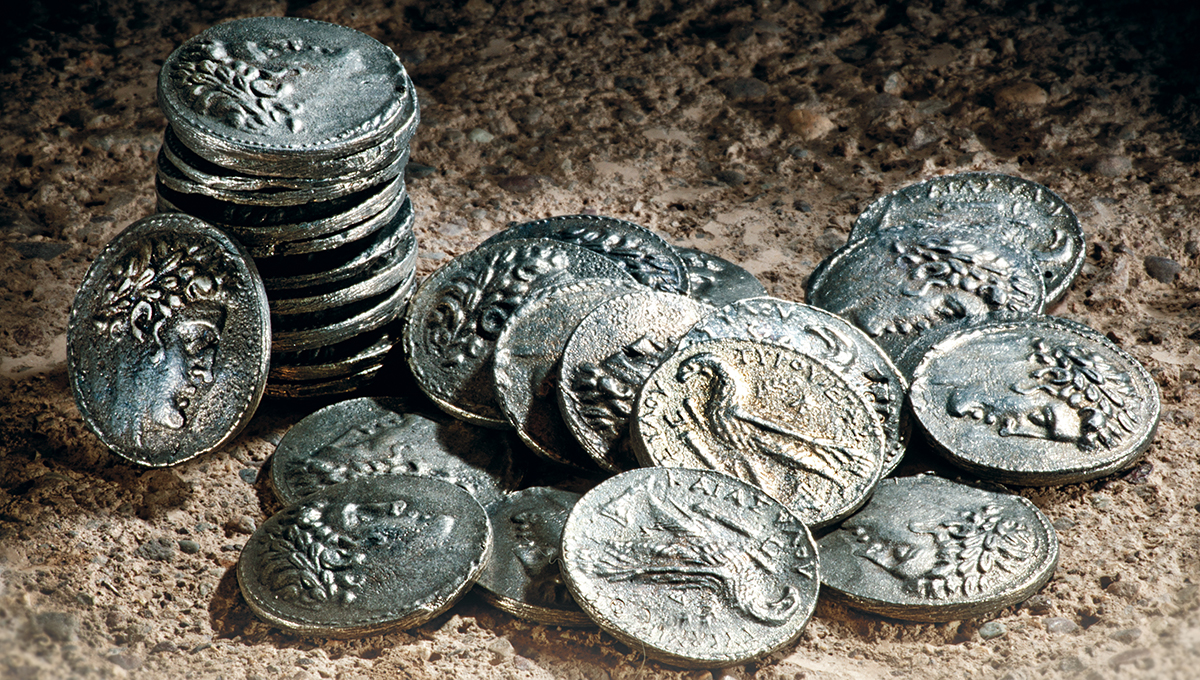JUDAS: ISCARIOT, OR NOT ISCARIOT
John 14:23-29
Sixth Sunday of Easter
Analysis by Marcus Felde
Jesus answered him, “Those who love me will keep my word, and my Father will love them, and we will come to them and make our home with them. 24 Whoever does not love me does not keep my words; and the word that you hear is not mine but is from the Father who sent me.
25 “I have said these things to you while I am still with you. 26 But the Advocate, the Holy Spirit, whom the Father will send in my name, will teach you everything, and remind you of all that I have said to you. 27 Peace I leave with you; my peace I give to you. I do not give to you as the world gives. Do not let your hearts be troubled, and do not let them be afraid. 28 You heard me say to you, ‘I am going away, and I am coming to you.’ If you loved me, you would rejoice that I am going to the Father, because the Father is greater than I. 29 And now I have told you this before it occurs, so that when it does occur, you may believe.
Author’s Note: Jesus brings up for discussion at his last supper the two options his disciples will face when he is gone: abiding or absconding. He inspires them to abide with the promise of an Advocate, the Holy Spirit, who will help them remember their Lord.
It’s a shame the pericope committee cut off verse 22, in which “Judas (not Iscariot) asks, “Lord, how is it that you will reveal yourself to us, and not to the world?” Translation: “How will it be possible for us to be your followers, when you are not obvious any longer? When we can’t point to your miracles and listen to you preach? How “in the world” can we be your disciples without your presence?”
I think the evangelist deliberately let Judas not Iscariot ask this question, since, among the apostles, Judas Iscariot was to become the first apostate. Let’s use the two as titles for our comparison of life without and with Jesus-gone-yet-present. After all, from the 1600’s in English the word “Iscariot” became a synonym for traitor.
Some scholars say the Gospel of John was written down to help with the problem of young people who were leaving the church decades after the resurrection. He wanted them to see they were only facing the same difficulty the first disciples faced when Jesus was taken from them. (Those scholars translate John 20:31 as “that you may continue to believe,” rather than “come to believe.”)
(For word nerds only: the words traitor and tradition, ironically, come from the same root, meaning “to give over.” A confessor hands over the truth or the tradition to others; a traitor, in early Latin, was one who handed over believers to persecution.)
DIAGNOSIS: Iscariot
Step 1: Initial Diagnosis (External Problem): Jumping Ship
Jumping ship when the going got tough was a real option for the disciples, no matter how heavily they were invested in Jesus. Judas Iscariot left for thirty pieces of silver. Jesus cautions his dear friends in these chapters about what they will miss out on. For one thing, in v. 12 he has said that believers (abiders) will “do the works that I do and, in fact, will do greater works than these.” No such promise for abandoners. They will go back to their old ways. They will get thirty, or fifty, or who know how many pieces of silver and other temporal rewards. But “greater works than these? Not gonna happen.
Step 2: Advanced Diagnosis (Internal Problem): Losing Jesus
The disciples were bound to “lose” Jesus—he would be crucified the next day. But the real loss would be to lose Jesus by abandoning his words. In v. 24 he talks about “not loving him” as equivalent to “not keeping” his words—which meant of course also his commands, his works, his peace, his Holy Spirit. (You need to read the whole chapter to get the full sense of where his disciples will land if they throw out the baby (their Lord) with the bathwater (his physical presence among them).
Step 3: Final Diagnosis (Eternal Problem): Eventual Homelessness
Jesus promises to prepare a place (earlier in the chapter) where they can be with him forever. The flip side, of course, is that leaving Jesus to go home, say, to the fisheries, would mean that the eternity of not being with Jesus would start the next day. Who needs that kind of trouble?
PROGNOSIS: Not Iscariot
 Step 4: Initial Prognosis (Eternal Solution): “Will Make Our Home with Them”
Step 4: Initial Prognosis (Eternal Solution): “Will Make Our Home with Them”
Jesus amazes his distraught disciples with the promise that “we” (the Father and I) will come and make their home with his followers who have stuck with his words. This answers the question of Judas not Iscariot. How can we be Christians if we’re not camping around Galilee with him? Easy. We camp in his promise of eternity with God.
Step 5: Advanced Prognosis (Internal Solution): Keeping Jesus
“With you” and “to you” and “with you” and “to you” (cf. vv. 25-28). Many are the ties that will bind us to Jesus in his palpable absence. We are sewn to him by all these promises. We are neither troubled nor afraid, because of the promises. We will be faithful because he has been and will be faithful to his friends.
Step 6: Final Prognosis (External Solution): Love Like the Lord
Unafraid, untroubled, insouciant, we abide with the One who is Gone, through the Holy Spirit he sent us. The world may not see why we should be like him, but impressing them is not the point. So we go on doing the works he did, and maybe some even mightier, because the God who so loved the world that he gave his only-begotten Son for us, never actually took him away!





You must be logged in to post a comment.